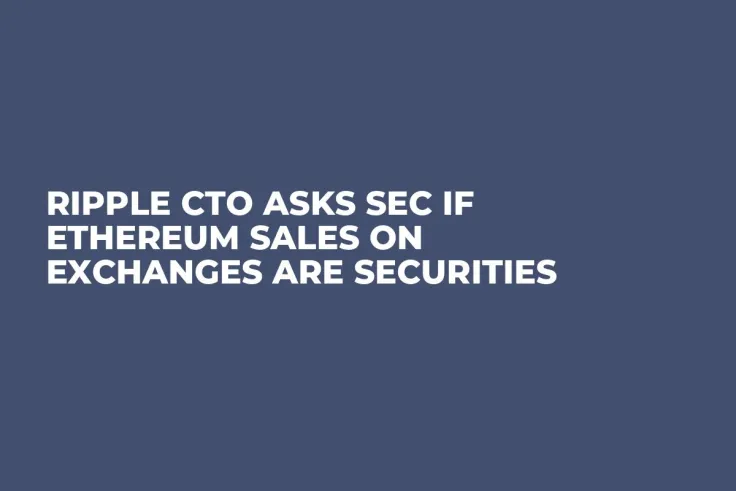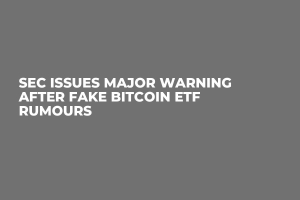
Disclaimer: The opinions expressed by our writers are their own and do not represent the views of U.Today. The financial and market information provided on U.Today is intended for informational purposes only. U.Today is not liable for any financial losses incurred while trading cryptocurrencies. Conduct your own research by contacting financial experts before making any investment decisions. We believe that all content is accurate as of the date of publication, but certain offers mentioned may no longer be available.
Ripple Labs Inc. CTO David Schwartz has posed a thought-provoking question to the United States Securities and Exchange Commission (SEC) over the security status of Ethereum (ETH).
Rhetorical inquiry about Ethereum
Taking to his official X handle, Schwartz responded to a post from the SEC in which the commission instructed the community to always revert to its own channels for news that pertains to its regulatory affairs.
The SEC's counsel comes after a piece of fake news broke about the commission approving the iShares Bitcoin spot ETF application from BlackRock. In the SEC's words, investors need to be careful what they read on the internet, noting that "the best source of information about the SEC is the SEC."
Drawing on this, the Ripple CTO asked the SEC if it thinks people selling Ethereum on secondary marketplaces are selling securities. This question is highly impractical to answer over social media as it constitutes the core of what the ongoing Ripple v. SEC legal battle as well as other trading platforms is all about.
To date, only XRP has been certified as an altcoin whose trading on secondary marketplaces does not constitute a security. This clarity was obtained after more than two years of litigation, with the favorable ruling decided by Judge Analisa Torres in July.
Based on the complexity of the question, any answer given by the market regulator will spark another round of curiosity that it obviously cannot afford at this time.
Continuous pressure for SEC
Despite being empowered by the law to regulate the market, the SEC is obviously not finding its role easy, especially as concerns crypto regulatory affairs. Besides being disfavored by a court ruling in the Grayscale-Bitcoin conversion case, the presence of industry giants like BlackRock and Fidelity in the race for a Bitcoin spot ETF has put the SEC on the edge overall.


 Vladislav Sopov
Vladislav Sopov Dan Burgin
Dan Burgin